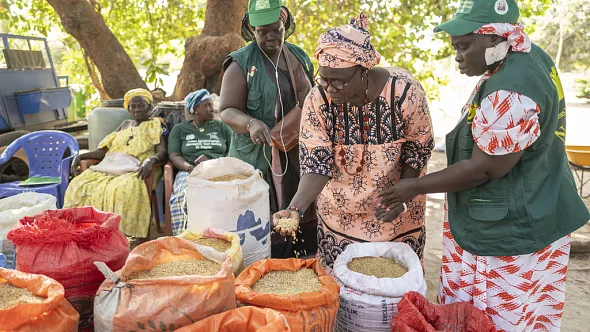Augustina Tufuor, a 30-year-old entrepreneur from Ghana, founded Tropical Snacks to produce all-natural plantain chips. However, despite her success, she struggled to expand her business due to financial barriers. Traditional banks required her to deposit 20,000 Cedis as collateral and hire a professional evaluator before even considering her loan request. Additionally, she faced a steep interest rate of over 36%, making growth nearly impossible.
Tufuor’s experience mirrors that of many women in sub-Saharan Africa, who face significant challenges accessing finance, land, and technology. According to the International Trade Centre (ITC), more than 70% of women-led businesses in Africa lack access to financial services, leaving them dependent on informal networks or personal savings.
To address these challenges, the Food and Agriculture Organization (FAO) and ITC launched the Empowering Women and Boosting Livelihoods through Agricultural Trade (EWAT) program. Spanning six countries, EWAT focuses on helping women entrepreneurs participate in the African Continental Free Trade Area (AfCFTA) by providing training on product development, sales, marketing, and financial readiness.
Asma Begum Mirza, a 61-year-old Nigerian agripreneur, also struggled to secure loans due to high-interest rates and collateral requirements. After attending EWAT’s Financial Readiness Bootcamp in Lagos, she learned how to better present her business plan and pitch to investors.
The program not only provides training but also works with financial institutions to create loan products tailored to women in agribusiness. FAO’s Senior Gender Officer, Clara Park, emphasized that gender equality is central to FAO’s work, and the organization is actively helping women access new markets, adapt to trade regulations, and improve their chances for financing.
Through initiatives like EWAT, women like Augustina and Asma are gaining the tools and knowledge needed to overcome structural barriers and expand their businesses in the agriculture sector.
